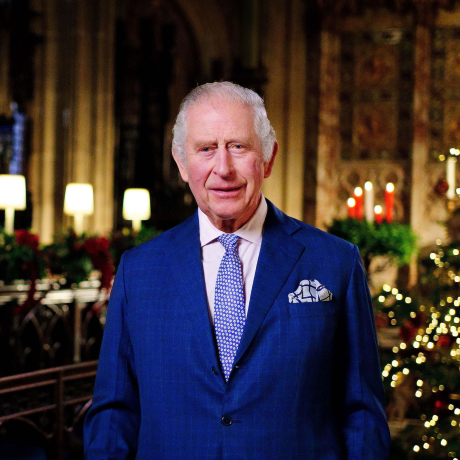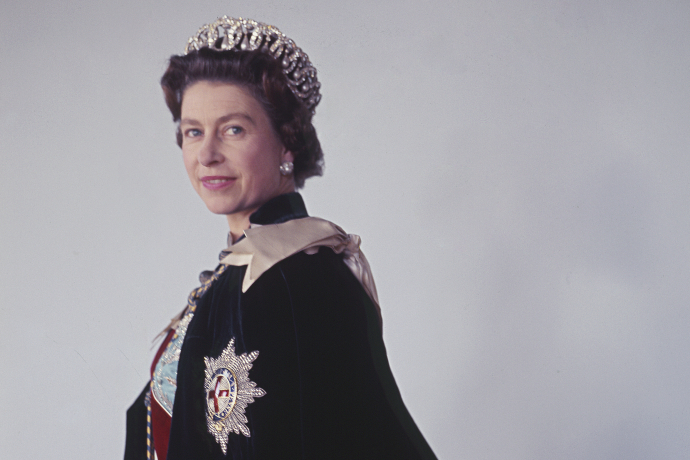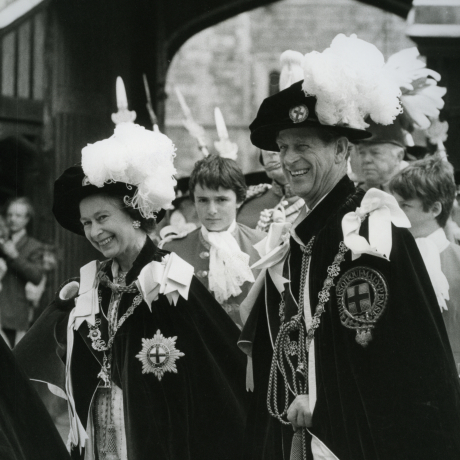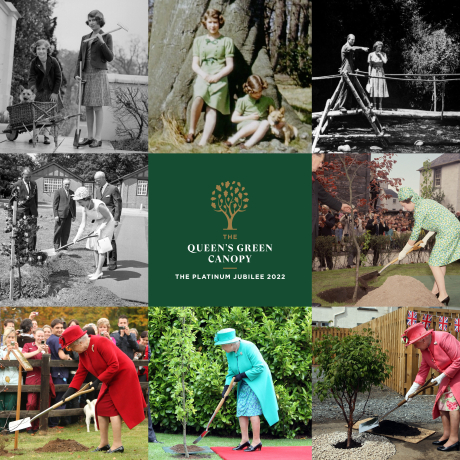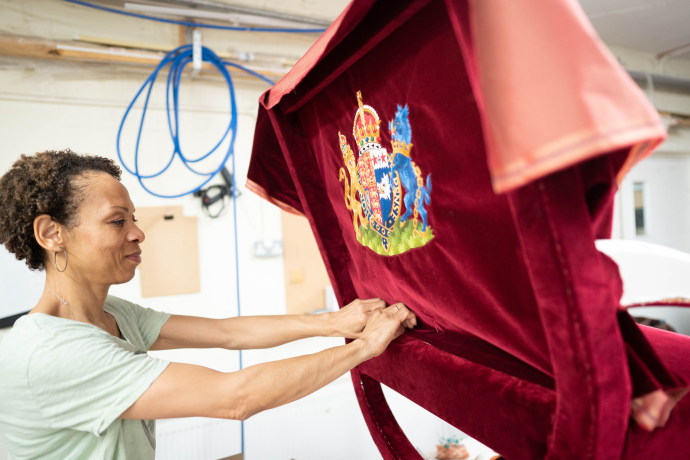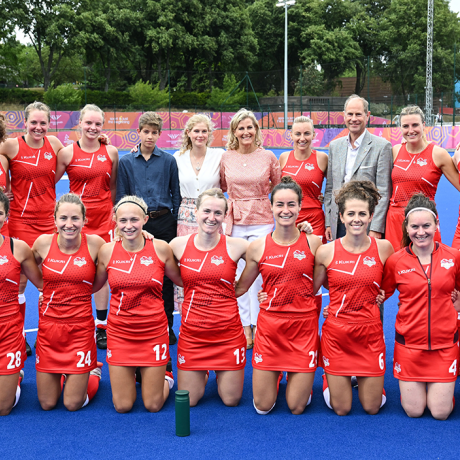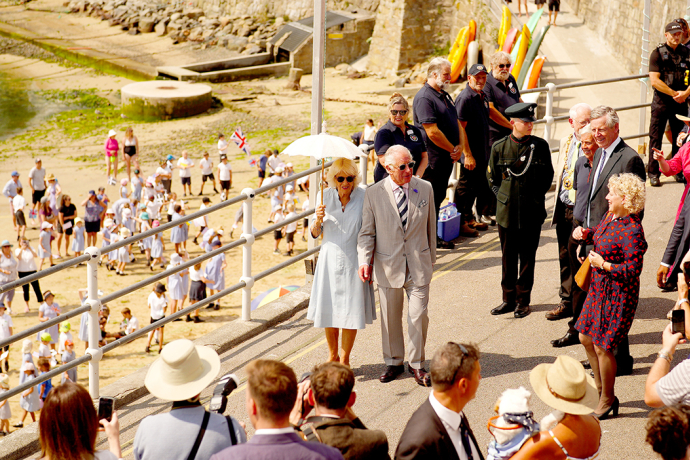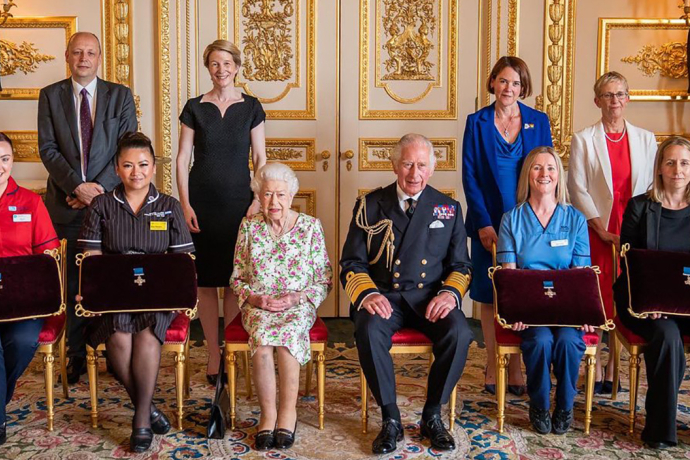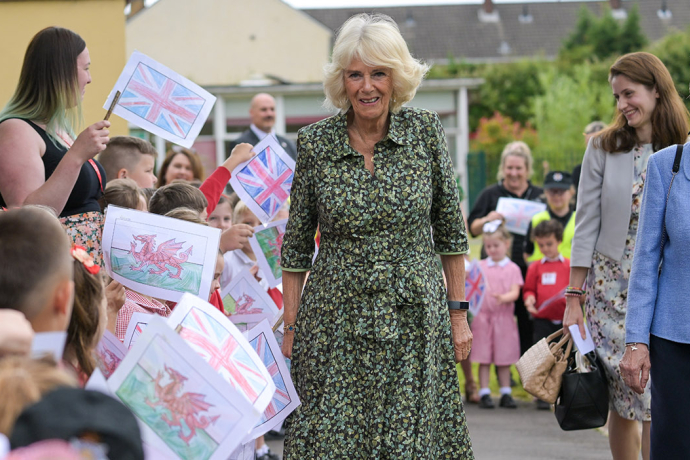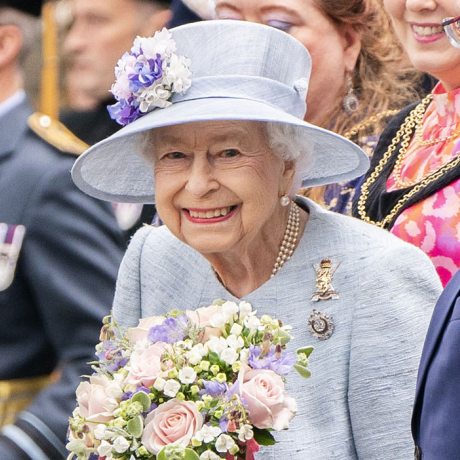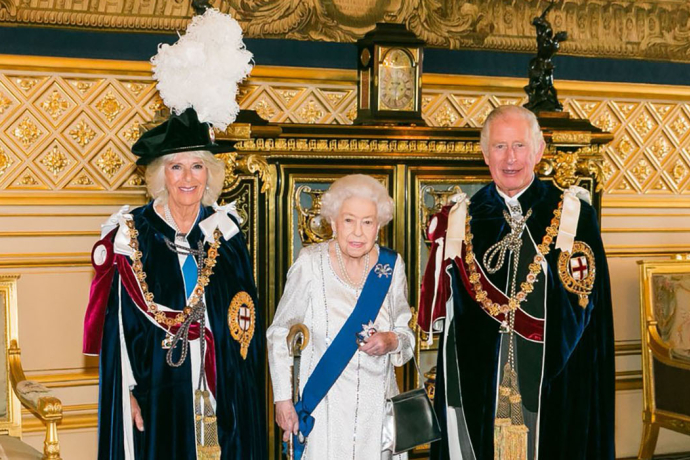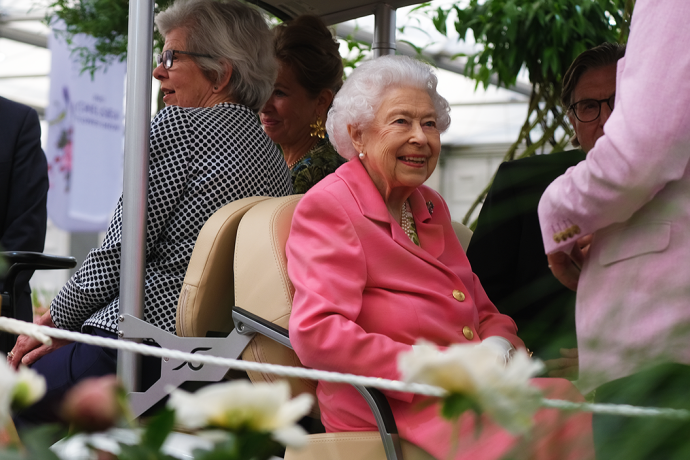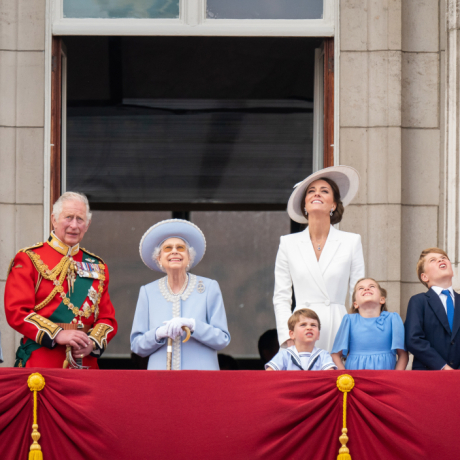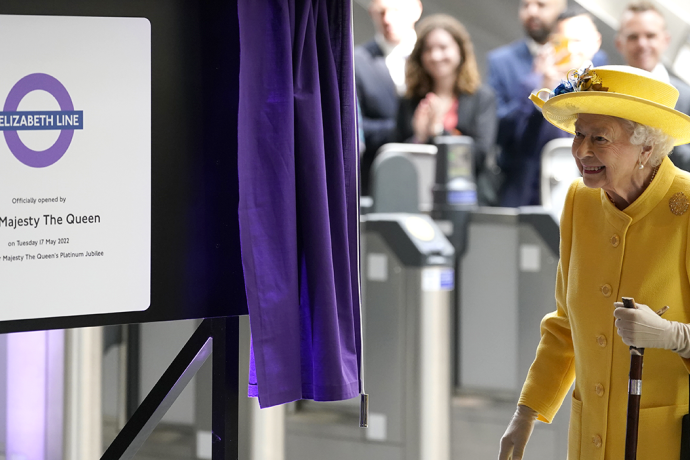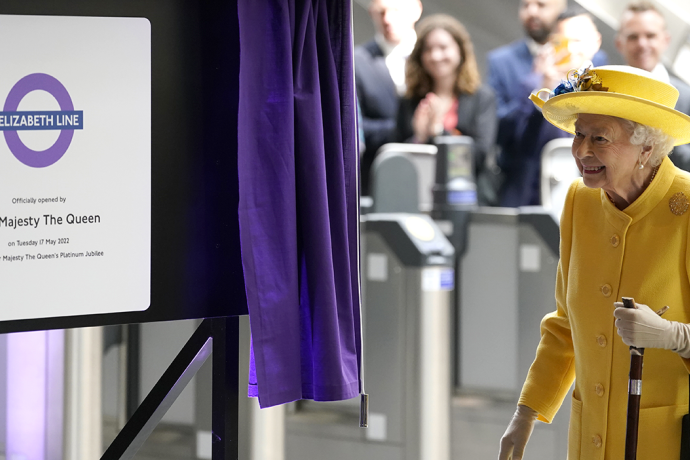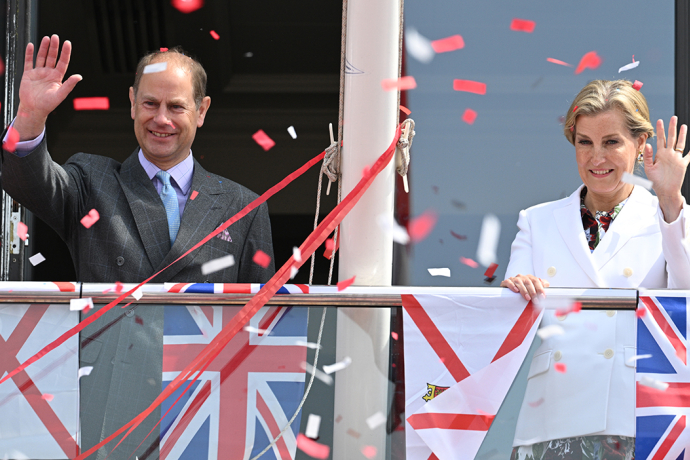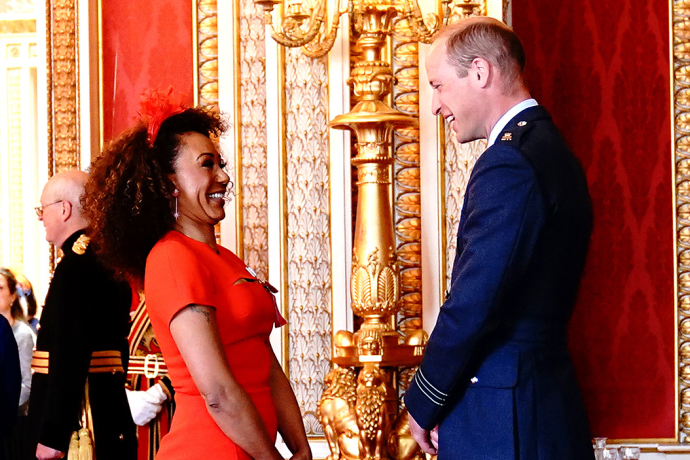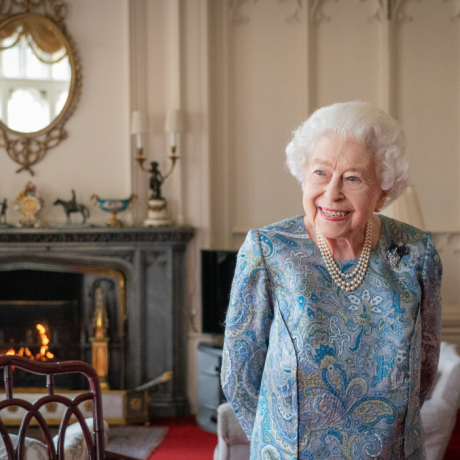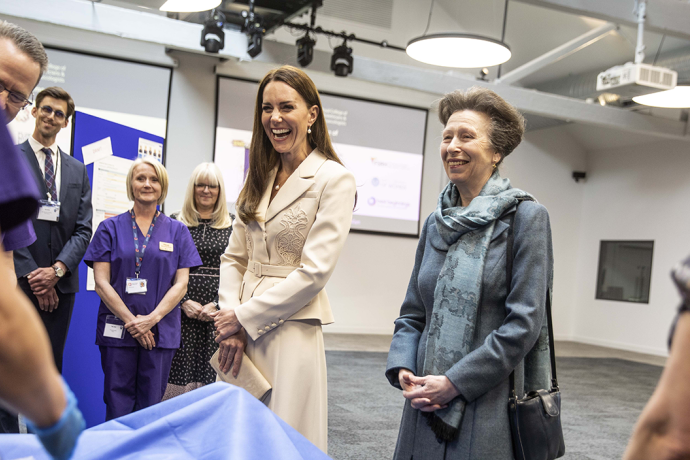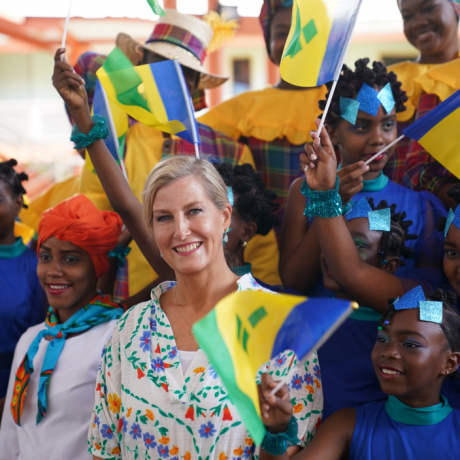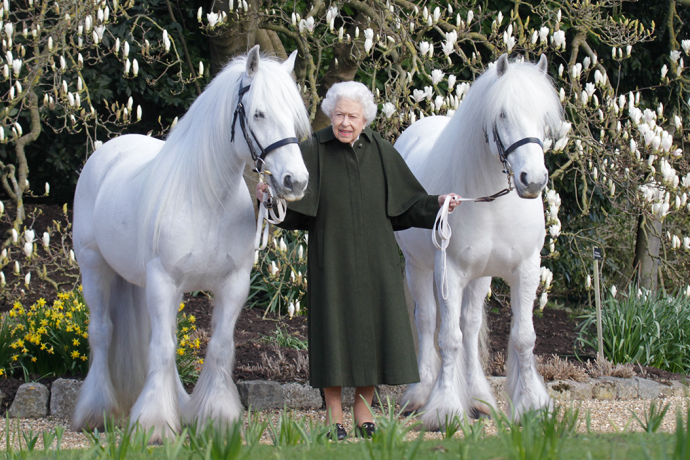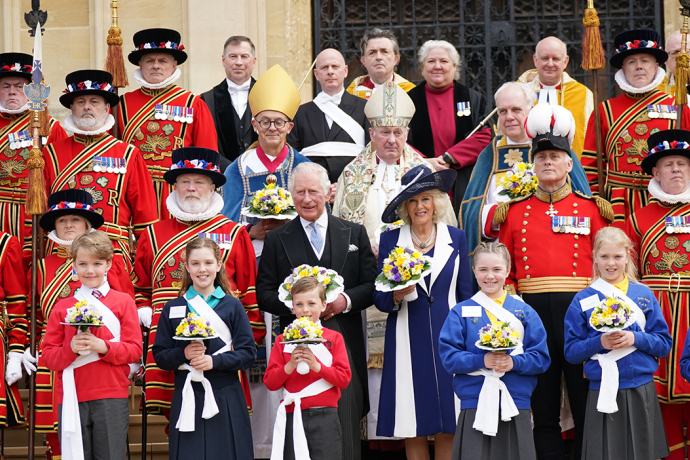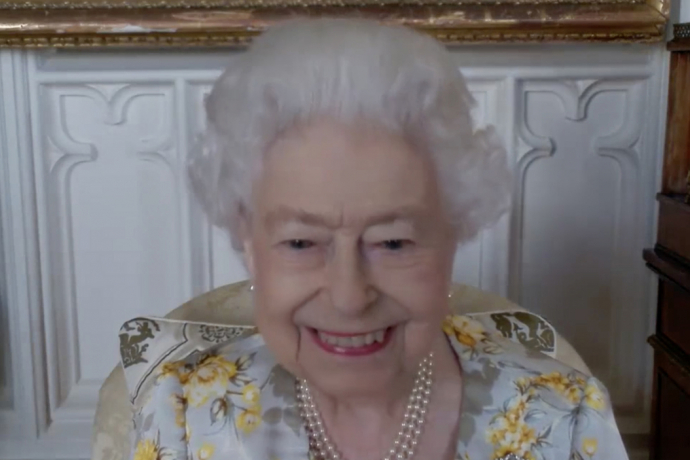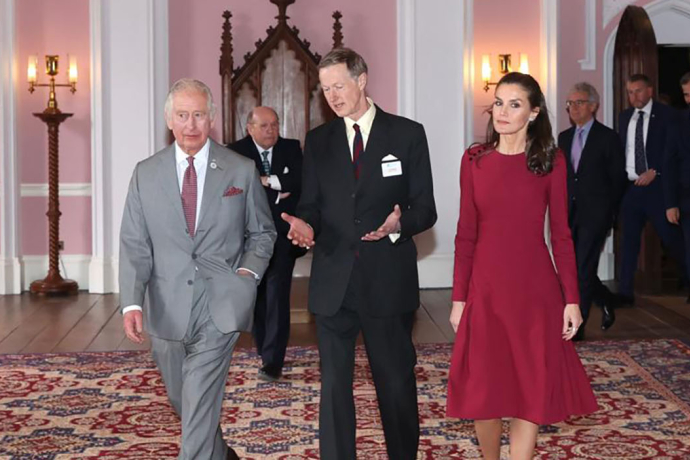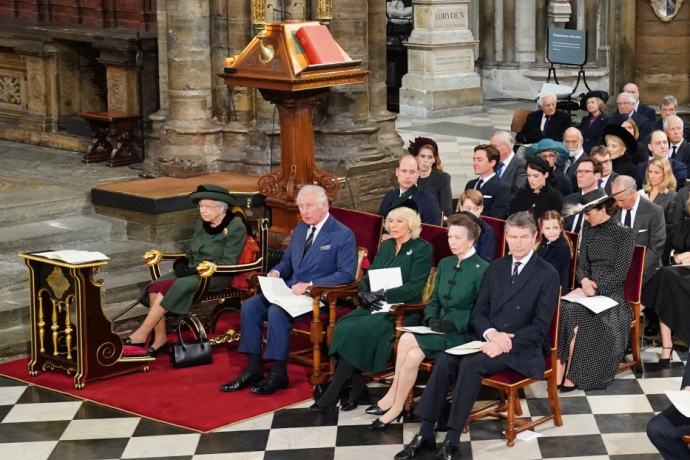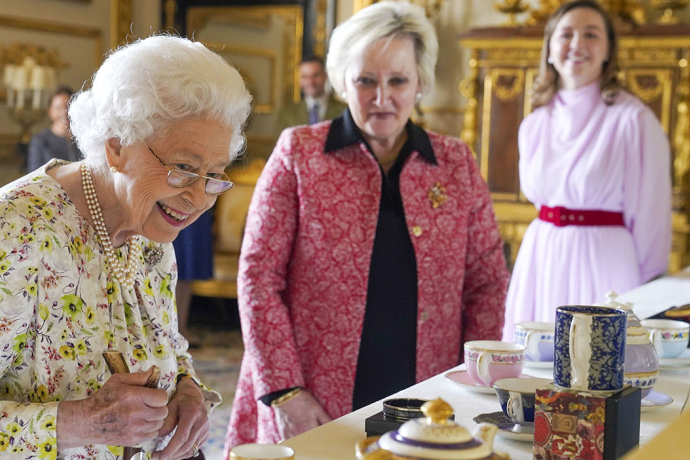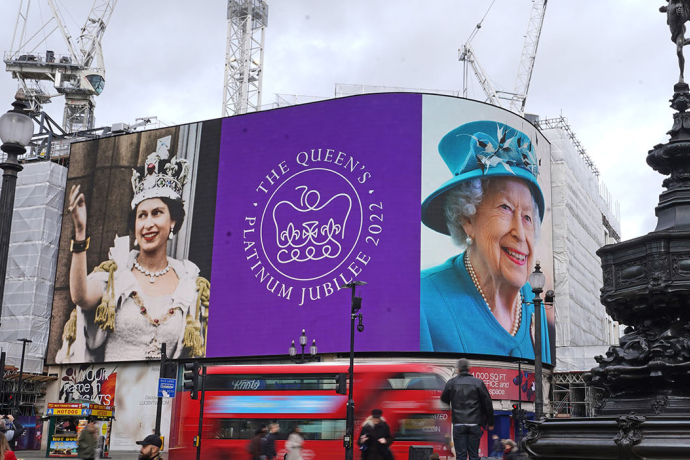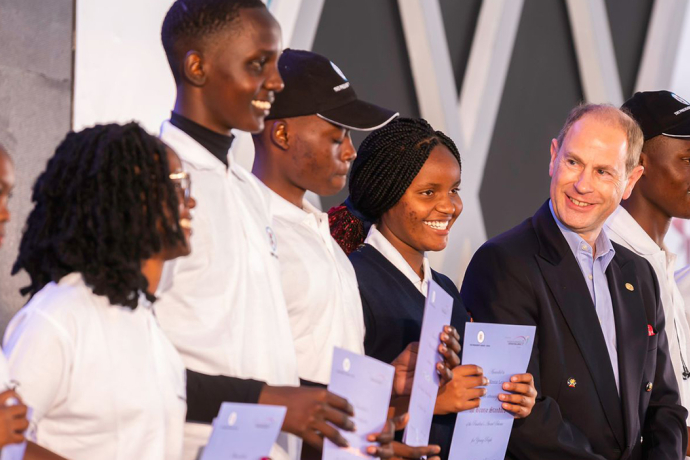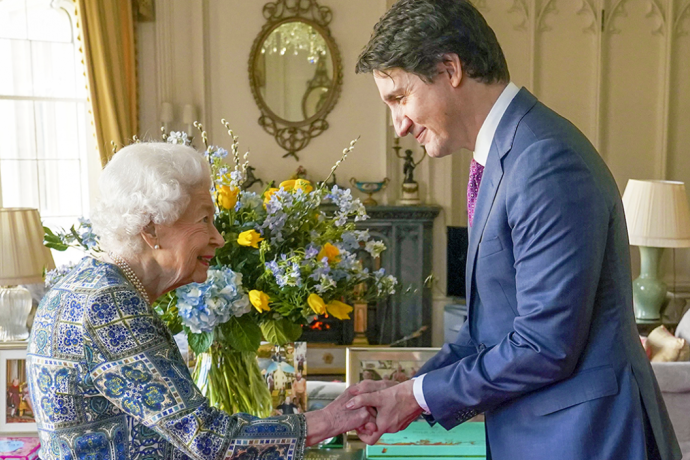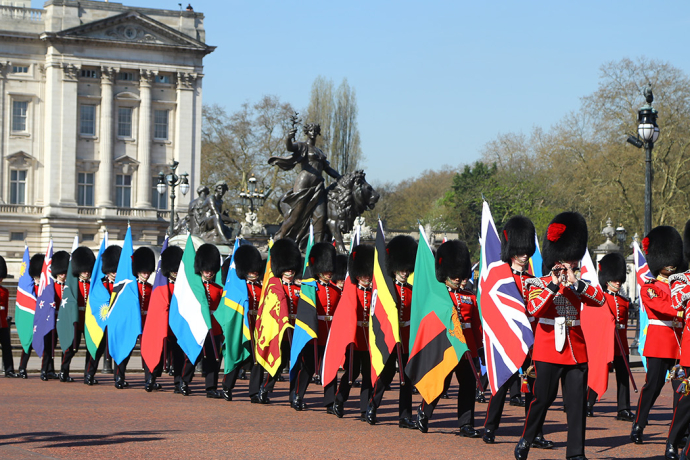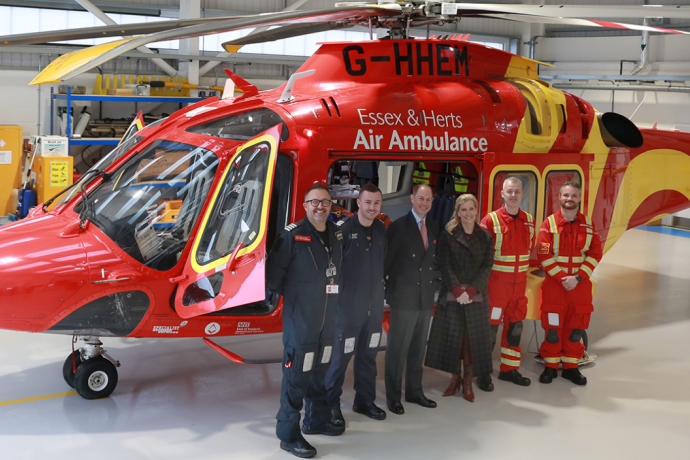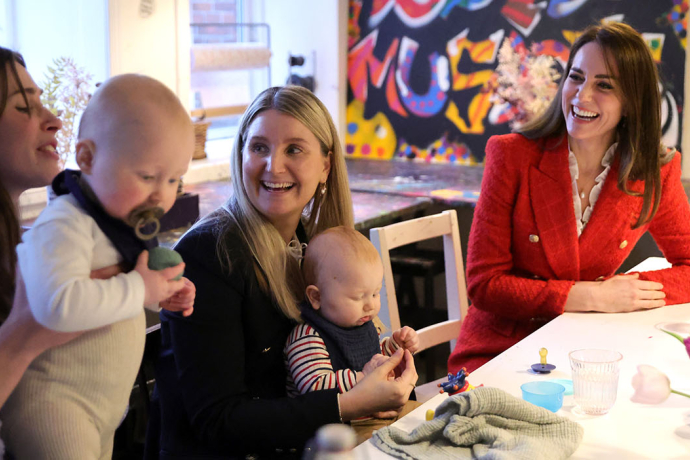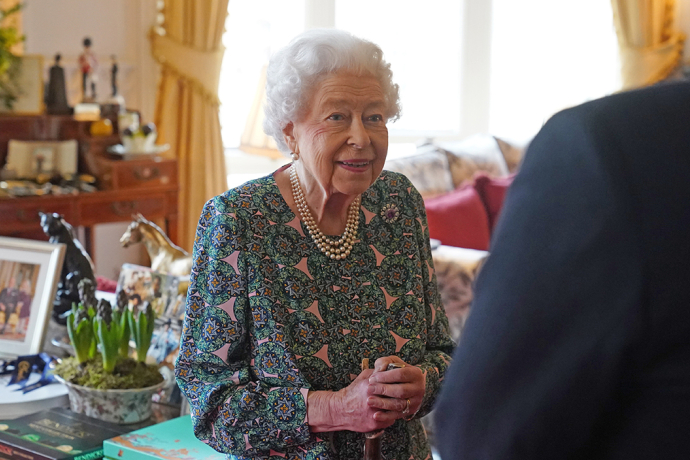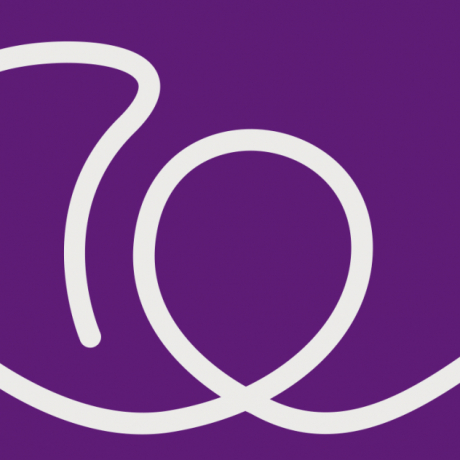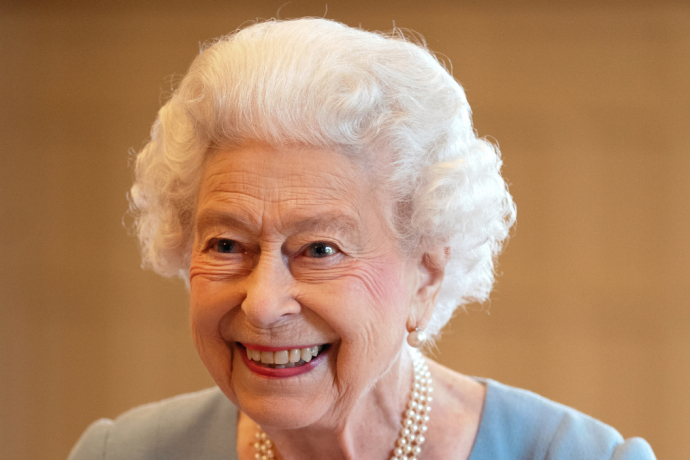- Introduction
- The first Christmas Broadcast
- Early Christmas Broadcasts
- Queen Elizabeth II's Christmas Broadcasts
- The King's Christmas Broadcast
- Christmas Broadcast transcripts
Introduction
The first Christmas Broadcast was delivered by George V in 1932 and since then has evolved into an important part of the Christmas Day celebrations for many in Britain and around the world.
Each Broadcast carefully reflects current issues and concerns, and shares The Monarch's reflections on what Christmas means to them and their listeners. Over the years, the Christmas Broadcast has acted as a chronicle of global, national and personal events which have affected the Monarch and their audience.
Find out more about this festive tradition, from the technological challenges of the first broadcasts, to the more recent broadcasts which have reflected the personal thoughts and concerns of The King and the late Queen Elizabeth II.
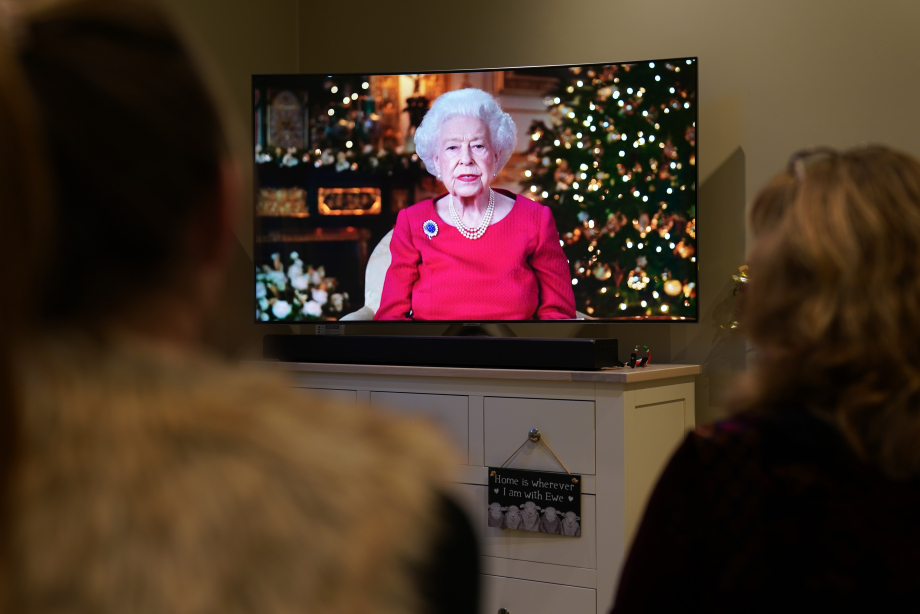
The first Christmas Broadcast
The Christmas message was started by The King's great-grandfather, King George V. King George had reigned since 1910, but it was not until 1932 that he delivered his first Christmas message.
The original idea for a Christmas speech by the Sovereign was mooted in 1932 by Sir John Reith, the visionary founding father of the BBC, to inaugurate the Empire Service (now the BBC World Service).
Originally hesitant about using the relatively untried medium of radio in this way, The King was reassured by a visit to the BBC in the summer of 1932, and agreed to take part. And so, on Christmas Day, 1932, King George V spoke on the 'wireless' to the Empire from a small office at Sandringham.
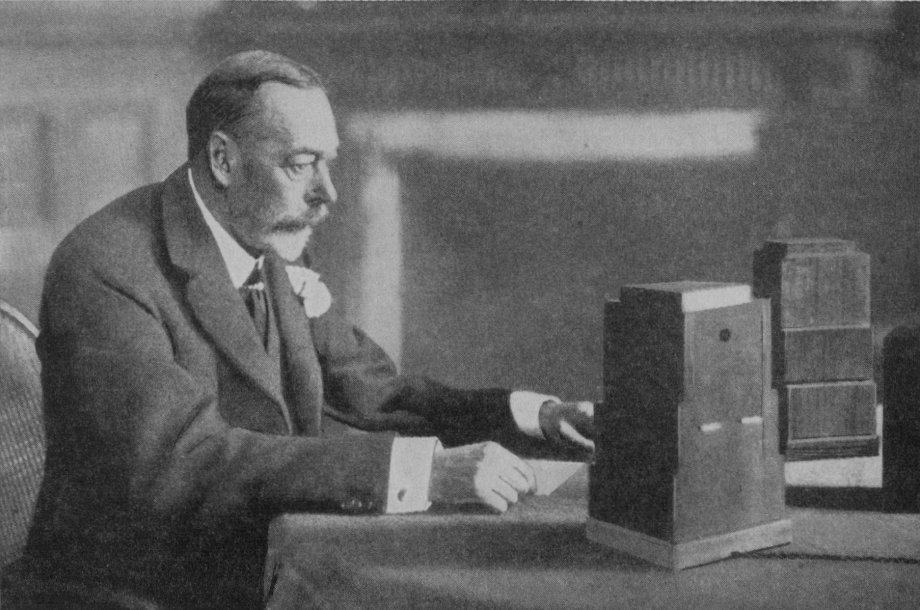
The transmission was an exercise of contemporary logistic brilliance. Two rooms at Sandringham were converted into temporary broadcasting rooms.
The microphones at Sandringham were connected through Post Office land lines to the Control Room at Broadcasting House. From there connection was made to BBC transmitters in the Home Service, and to the Empire Broadcasting Station at Daventry with its six short-wave transmitters.
The General Post Office was used to reach Australia, Canada, India, Kenya and South Africa.
The time chosen was 3.00pm - the best time for reaching most of the countries in the Empire by short waves from the transmitters in Britain.
In the event, the first Broadcast started at five past three (twenty-five minutes to four according to the King's 'Sandringham Time') and lasted two and a half minutes.
The Broadcast was preceded by an hour-long programme of greetings from all parts of the Empire.
The text of the first Christmas speech was written by poet and writer Rudyard Kipling and began with the words: "I speak now from my home and from my heart to you all."
I speak now from my home and from my heart to you all; to men and women so cut off by the snows, the desert, or the sea, that only voices out of the air can reach them.
The King acknowledged the unifying force of technology in his historic speech
As the sound of a global family sharing common interests, the Broadcast made a huge impact on its audience of 20 million. Equally impressed, George V made a Broadcast every Christmas Day subsequently until his death in 1936.
George V's last Christmas Broadcast in 1935 came less than a month before his death and the King's voice sounded weaker. He spoke of his people's joys and sorrows, as well as his own, and there was a special word for his children.
Early Christmas Broadcasts
King George V's eldest son and the new king, Edward VIII, never delivered a Christmas Broadcast, as his reign lasted less than a year.
The task fell to King George VI, King Edward's younger brother, who made his first broadcast in December 1937 in which he thanked the nation and Empire for their support during the first year of his reign.
Though the Christmas Broadcast was already popular by this time, it had still not yet become the regular tradition it is today. Indeed, there had been no broadcasts in 1936 or 1938.
It was the outbreak of war in 1939 which firmly established the Royal Christmas Broadcast. With large parts of the world now facing an uncertain future, King George VI spoke live to offer a message of reassurance to his people.
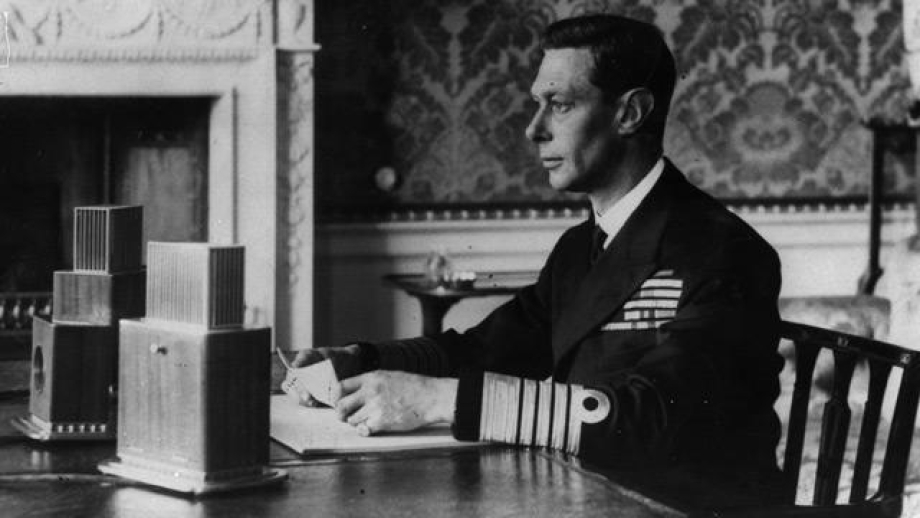
He dressed in the uniform of the Admiral of the Fleet, sitting in front of two microphones on a table at Sandringham. It was to be a landmark speech and was to have an important effect on the listening public as they were plunged into the uncertainty of war:
A new year is at hand. We cannot tell what it will bring. If it brings peace, how thankful we shall all be. If it brings us continued struggle we shall remain undaunted
The war-time Christmas Broadcasts played a large part in boosting morale and reinforcing belief in the common cause. When the war ended, the Broadcasts - with their sentiments of unity and continuity - continued as a matter of course throughout the subsequent decades of change.
King George VI's final Christmas Broadcast was marked by the illness that had plagued the King through his last years. The 1951 Broadcast was the only Broadcast that King George VI recorded rather than delivering live.
The King was only able to manage it in intervals, but his voice came over strongly. He spoke of his recovery from illness and the goodwill messages he had received:
From my peoples in these islands and in the British Commonwealth and Empire - as well as from many other countries - this support and sympathy has reached me and I thank you now from my heart..
Queen Elizabeth II's Christmas Broadcasts
Queen Elizabeth II made her first Christmas Broadcast in December 1952, following her Accession earlier in the year. In her Broadcast, she spoke of carrying on the tradition passed on to her by her father:
My father, and my grandfather before him, worked all their lives to unite our peoples ever more closely, and to maintain its ideals which were so near to their hearts. I shall strive to carry on their work.
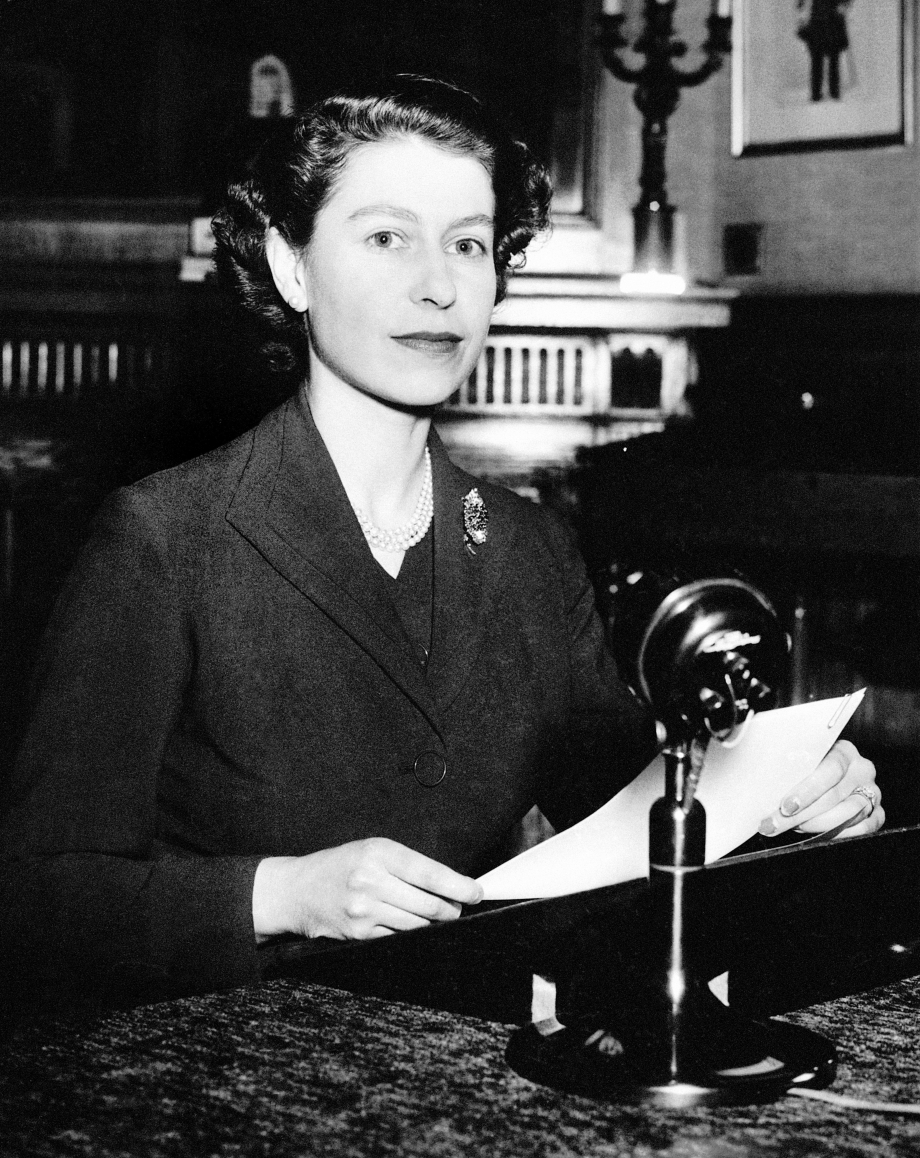
Her Majesty thanked her subjects for their "loyalty and affection" since her accession to the throne 10 months previously and promised to continue the work of her father and grandfather to unite the nations of the British Commonwealth and Empire. She also asked her audience to pray for her on her Coronation Day the following spring.
The Queen went on to make a Broadcast every year except one. No Christmas Broadcast took place in 1969 because a repeat of the documentary Royal Family was already scheduled for the holiday period.
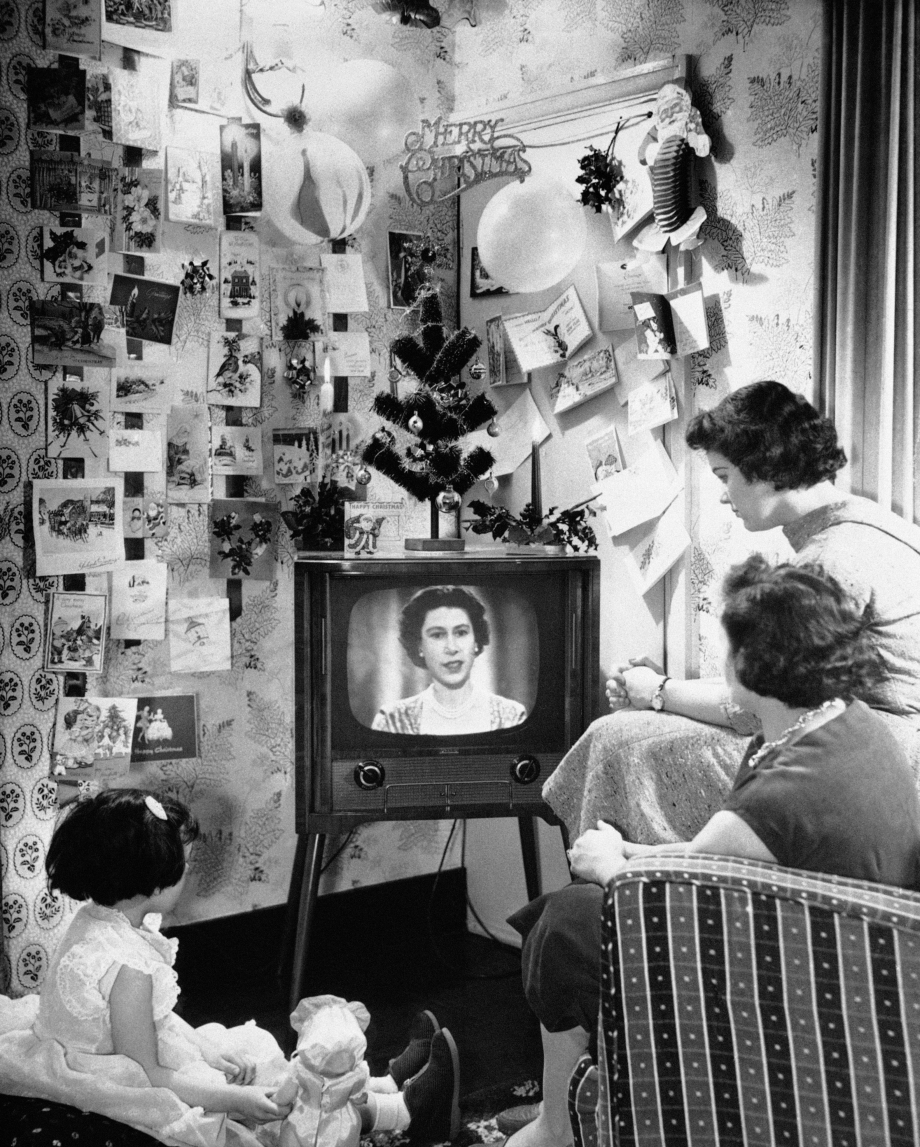
Public concern at this apparent break with tradition prompted Her Majesty to issue a written message of reassurance that the Broadcast would return in the following year, so popular had it become.
The first televised message was broadcast live in 1957. The advent of television during The Queen's reign gave an added dimension to her Broadcasts, allowing viewers to see her in her own residences, decorated for Christmas like many homes across the world.
The location was usually Buckingham Palace, but recordings were also made at Windsor and Sandringham. In 2003 the message was filmed at Combermere Barracks in Windsor - the first time the address had been shot entirely on location.
From 1960, Broadcasts were recorded in advance so that the tapes could be sent around the world to Commonwealth countries, to be broadcast at a convenient local time.
Over the years, the Broadcasts chronicled both the life of the nation and of The Monarchy; the Broadcast was one of the rare occasions when The Queen did not speak on Government advice. Instead, Her Majesty gave her own views on events and developments of concern both to her personally and to the wider general public, and Commonwealth.
In 1966, for example, during a decade which saw great changes for women, The Queen spoke about the important role of women in society:
This year I should like to speak especially to women. In the modern world the opportunities for women to give something of value to the human family are greater than ever, because, through their own efforts, they are now beginning to play their full part in public life
The Queen's Christmas Broadcast, 1966
Whilst in 1983, when the computer age was in its infancy, Her Majesty spoke of the very modern technologies which were helping to transmit her Broadcast, but warned against allowing these technologies to replace human interaction and compassion:
This mastery of technology may blind us to the more fundamental needs of people. Electronics cannot create comradeship; computers cannot generate compassion; satellites cannot transmit tolerance
The Queen's Christmas Broadcast, 1983
Her Majesty was always conscious of her role as Head of the Armed Forces in her Christmas Broadcasts, and often spoke of British and Commonwealth troops serving overseas over the Christmas period, and their families left behind.
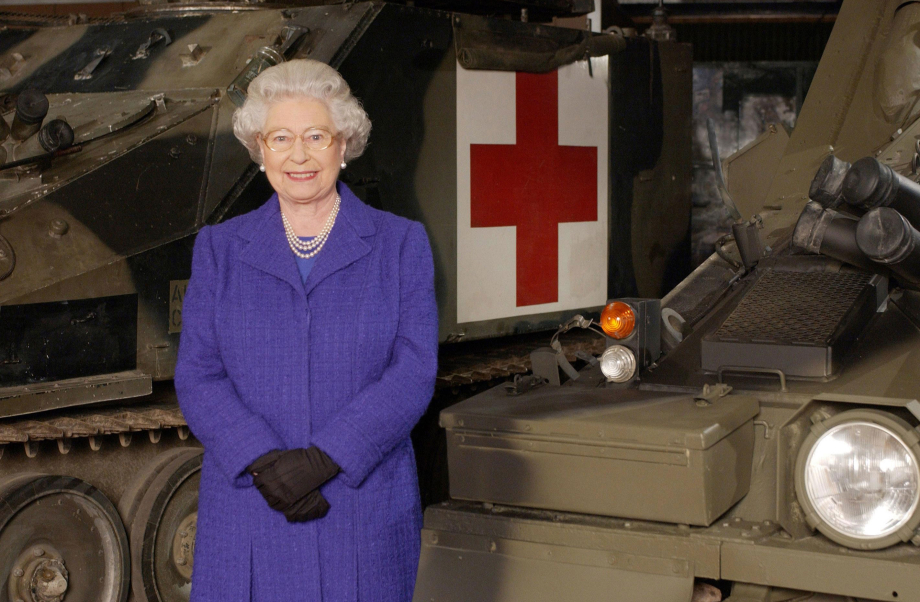
In 1990, The Queen referred to the threat of war in the Middle East, and the effect it was already having on military families:
The servicemen in the Gulf who are spending Christmas at their posts under this threat are much in our thoughts. And there are many others, at home and abroad, servicemen and civilians, who are away from their own firesides.
The Queen's Christmas Broadcast, 1990
And in 2003, a special Broadcast from the Household Cavalry Barracks in Windsor was arranged at Her Majesty's request
I want to draw attention to the many servicemen and women who are stationed far from home this Christmas. I'm thinking about their wives and children and about their parents and friends
The Queen's Christmas Broadcast, 2003
As the Christmas Broadcast was Her Majesty's own personal message to the nation, The Queen occasionally shared personal concerns with her listeners.
In her 1990 Christmas broadcast, for example, she spoke of the happy family events which had taken place that year:
My family ... has been celebrating my mother's Ninetieth Birthday, and we have shared with you the joy of some of those celebrations. My youngest grandchild's Christening, two days ago, has brought the family together once again. I hope that all of us lucky enough to be able to enjoy such gatherings this Christmas will take time to count our blessings.
The Queen's Christmas Broadcast, 1990
In 2002, another Jubilee year, Her Majesty spoke of her grief at the death of Her Majesty Queen Elizabeth The Queen Mother and Princess Margaret, thanking the public for their messages of support:
At such a difficult time this gave me great comfort and inspiration as I faced up both to my own personal loss and to the busy Jubilee summer ahead
The Queen's Christmas Broadcast, 2002
In each of her Jubilee years – 1977, 2002 and 2012 The Queen used the Christmas Broadcast to thank the public for their part in the festivities. In 2012 she said:
This past year has been one of great celebration for many. The enthusiasm which greeted the Diamond Jubilee was, of course, especially memorable for me and my family. It was humbling that so many chose to mark the anniversary of a duty which passed to me sixty years ago
The Queen's Christmas Broadcast, 2012
For The Queen, the Broadcast was not only a duty to be fulfilled, but an opportunity to speak directly to the public, to react to their concerns and to thank and reassure them.
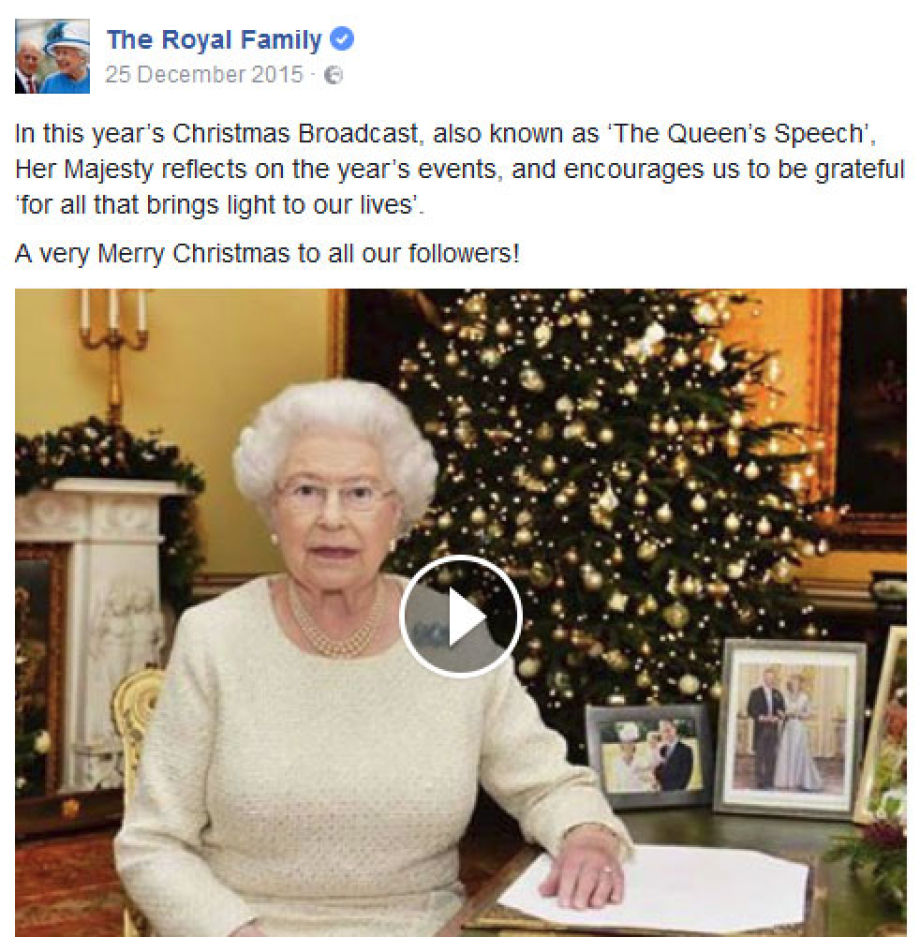
The King's Christmas Broadcast
The King's first Christmas Broadcast as Monarch was recorded in December 2022, just three months after the death of Queen Elizabeth II and his own Accession.
His Majesty spoke of the loss of his mother, and all of those who were experiencing grief:
Christmas is a particularly poignant time for all of us who have lost loved ones. We feel their absence at every familiar turn of the season and remember them in each cherished tradition.
The King also touched on the themes of service to other and connecting with others through our shared humanity.
Christmas Broadcast transcripts
The King's Christmas Broadcasts:
Queen Elizabeth II's Christmas Broadcasts:
The Christmas Broadcast 1954
The Christmas Broadcast 1955
The Christmas Broadcast 2012
The Christmas Broadcast 2013
The Christmas Broadcast 2014
The Christmas Broadcast 2015

